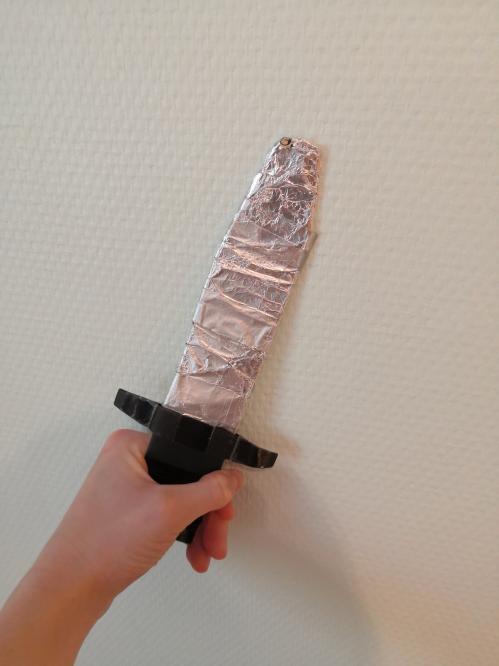Rule number one
Practice common sense. This is a game, and it is meant to be fun. No one should suffer unnecessary trouble or grievances for it.
All that the rules do not explicitly forbid is allowed! If you cause trouble or break the rules in any way, the umpires have a full right to decide about your fate, and you are not allowed to complain about it. The game doesn't give you the right to break the law either: in that case, the police has the full right to decide about your fate and you're no longer welcome in out games.
Before the game
- The game begins and ends at the time announced in advance.
- The game is played outside safe zones throughout the whole tournament.
- The players enroll into the game via a tournament system that is used to maintain the game.
- Required information for the player's participation are the following:
- name, so the hunters know who they are chasing
- appropriate alias, that is used for public communication
- an address, so that hunters can find your trail
- an email address, that is used to convey game information
- recent and truthful selfie, so that hunters may identify their target
- and finally a schedule for the tournament, so that hunters may catch their targets on time.
The information is given in advance to the tournament system, which uses the email for logging in. All information is deleted from the system after the game.
- The winners of the game are players, who have scored most points after the tournament has ended. One may gain points from
- in-game operations, which are eg. murders, arrests and self-defenses and
- operations' reports. All self-performed operations are announced immediately and reported to the umpires within 48 hours of the event. A late report will lead to minus points. More time can be kindly requested from the umpires. More details on scoring.
Roles and missions
The game has a variety of roles with different missions:
- Umpires are people supervising the game and players.
- Players are people, who play the game. During the game, a player may only be one of the following roles at a time::
- assassin, who hunts their targets and murders them. Each assassins has their own pro level, which leads to extra rules being applied.
- a detective, who hunts wanted assassins and arrests them. One may become a detective when
- a dead player is informed so by the umpires or
- a person informs the umpires beforehand of their wish to become one.
- kuollut, joka kääntyilee haudassaan rauhattomasti kunnes tuomaristo toisin ilmoittaa.
- Bystanders are people, who don't participate in the game.
- Witnesses are people, who may identify the murderer after a murder has taken place.
- Observers are people, who observe the murder taking place. Rule of thumb: All observers are witnesses, all witnesses are not observers nor by-standers.
- Sometimes the may have:
- extra targets aka "rabbits", , who are hunted by the players but do not hunt others themselves. The rabbits may die once for each player. One can apply to become an extra target by notifying the umpires beforehand of their wish. The umpires nominates the extra targets as they see fit from the applicants. The rabbit has the required information for the participation as the player does.
- bodyguards, whose mission is to protect and help the player until they are killed (they revive in a while or when the room changes). Bodyguards are not observers, and they wear colored armbands so players may distinguish them. One can apply to become a bodyguard by notifying the umpires beforehand. The umpires nominate bodyguards as they see fit from the applicants. No information is required for the participation from the bodyguards.
During the game
- The players lead their regular lives within the announced schedule throughout the game, within moderation.
- The ongoing game can be discussed but you may not reveal your participation in it. (Exception: You're free to explain your own blunders or those of others, if you e.g. shoot an innocent bystander or your roommate gets shot by accident.) This rule is intended to protect players from accidental exposure and to prevent players from drafting bystanders as game-aware accomplices.
- It is extremely forbidden for the players to:
- target anything at all to anyone's head. We only pretend to be murderous.
- take any physical contact with another players with the exception of knives. Everyone has a right to their body.
- conduct any operations in safe zones or escape to these zones. We are a peaceful organization with good sportsmanship.
- forcibly open/close doors or cause similar dangerous situations. Thus, no power plays, but rather graceful and stylish escapades without bumping into other people.
- to present themselves in a wrong role or as an umpire, official (police, firefighter, etc.) or dead person or to claim others to be dead or wanted. We are fair and law-abiding citizens.
- murder anyone based on the game situation or suspicious behaviour – except in self-defence situation. A mere doubt or suspicion about someone's participation is not sufficient to justify an operation. No, that dark jacket, sunglasses and skulking around the corner is not enough, instead the player must identify the person with 100% confidence as their target or hunter.
- The player is expected to:
- follow law, all game rules mentioned in this page and all game-specific extra rules set down by the umpires.
- be rational, discreet and polite in all situations. The player will apologize and fix the situation, if they unnecessarily cause any trouble to anyone and they will report about it to the umpires. Troubles caused with serious intent will lead to being banned from the games indefinitely.
- not to share any private information gained from other players in any way.
- to avoid killing or troubling by-standers to the end. Violations of this rule can be taken into accordance in the scoring.
- know and accept without objections that their hunters are likely watching them prior to assassination attempts.
- accept that this is only a game, and not a matter of life and death. A lose or a win is not meant to be taken too seriously.
- understand that one who hit first, gets their way. All hits are counted so players are not drowning their targets in water or nerf darts. If the players truly can't say whether they were hit and in which order, all involved players are dead.
Safe zones
- Fully pacified zones are zones, where nothing occurs in-game. Therefore players are not allowed to escape into these safe zones or conduct any operations in them!
- Partially pacified zones are safe zones, where may (in certain conditions) happen something.
- The following locations are fully pacified:
- Toilets, dressing rooms or other spaces, where people undress.
- Personal safe zones or times, which the players can request for special reasons. A special reason can for example a workplace, where in-game activity is impossible, dangerous or otherwise harmful (eg. construction sites, test animal labs, security gigs and so on). In order to keep the game meaningful, personal safe zones and times must be kept as small as possible.
- The following locations are partially pacified:
- Libraries, computer stations, offices and other places containing electric equipment are under water ban. BANG-rule and other weapons are allowed.
- Players' homes without an invitation. (Entering through a window – No. "Would you like to discuss the Kingdom of Heaven?" – Yes.)
Assassins
- An assassin murders their targets, who are seen in the tournament system. Targets are other assassins and possible extra targets.
- In murders, the assassins fall under witness and observer rules, weapons rules and pro rules.
- In self-defense situations, the witness, observer and pro rules do not apply.
- The assassin dies only once, so they have only one life. After death, they may become a detective when the umpires inform them so; otherwise the player stays dead until the umpires inform otherwise.
- An assassin may become wanted during the game. The conditions of becoming wanted.
- An assassin works alone. If two or more assassins happen to be around the same target at the same time, they may negotiate how to proceed. If a consensus is not found, the umpires will create it for them.
Becoming wanted
- An assassin may become wanted if:
- they do not conduct their life as described in the schedule
- there are (too) many witnesses to their murders or
- the umpires see a well-grounded reason for the assassin becoming wanted, such as entrenching in one's home.
- After an assassin becomes wanted, the detectives will start to hunt the wanted assassin in an attempt to arrest and shoot the assassin dead. More info about the detectives.
Pros
Only the assassins' actions have pro level differences in use, the detectives' actions do not. The level differences' purpose is to level out the game between new and experiences players so that the games don't evolve into a totally unfair massacre for the pros at the expense of the rookies. Additionally, they direct the players to go for the style instead of the amount. Most importantly, the level differences grant extra points, so actually the pros should be slaughtered at the first opportunity to secure one's own victory! For example, if an untitled player murders an LL player, the untitled gets three extra points. Likewise a BB player would get one extra point for the murder of a MM player. Note that pro levels are never granted during a game, instead they are granted only once in a year in the Sacrificial Celebration. This is meant to prevent rule changes in the middle of a game. The pro levels are as follows:
- Bachelor of Blood, BB (2 murders and 3 other actions)
- 50% higher chance of becoming wanted
- Master of Murder, MM (5 murders, 5 other actions and 1 umpire)
- all the preceding limitations apply
- home stairway murders are forbidden
- becomes wanted if one has less than 10 points from two or more murders
- Licentiate of Liquidation, LL (10 murders, 10 other actions, 1 head umpire and 2 other umpires)
- all the preceding limitations apply
- pistols are forbidden
- becomes wanted immediately in the case of a witness, a rule breach or if one has less than 10 points from two or more murders
- Doctor of Demise, DD (10 murders, 10 other actions, 2 head umpires, and 3 other umpires)
- all the preceding limitations apply.
Witnesses and observers
- An observer is anyone who see the murder taking place. The observer's field of vision is by default 360 degrees, so all people in the same room are counted as observers even if they are looking the other way. When using poisons, an observer is anyone who see the poisoning taking place and the possible death occurring from it.
- A witness is anyone, who could identify the murderer. For example, a person who walks into an empty room, discovers a corpse and has seen one person leave before them, is a witness.
- Witnesses and observers are immortal and can not be killed.
- Detectives are not counted as observers.
- More than two observers cancels the assassination and leads to an assassin becoming wanted.
- 1-2 witnesses increases the risk of the assassin becoming wanted.
Detectives
- A detective arrests wanted assassins, who are shown in the tournament system. The instructions for the arrest are below.
- Detectives can't use indirect weapons, such as poisons, animals or bombs. They can only use water guns and nerf blasters. More information about weapons.
- A detective dies, if they are shot in self-defense, eg. during an arrest.
- A detective may die only once, ie. they have only one life. The detective will remain dead until the umpires inform otherwise.
- Detectives do not have to follow witness and observer rules, and they themselves are not observers.
- Detectives may work together. The points will be divided as the umpires see fit.
Arrest
- The arrest takes place in a following fashion:
- A detective must point the target with a gun and say clearly "[Alias], surrender." Only after this the target can be shot.
- If the arrestee reaches for a weapon, they can be shot immediately. If the arrestee starts to run, the sentence still must be finished first.
- One call for surrender per arrest situation is sufficient.
- A successful arrest always ends in the arrestee getting shot so surrendering is not actually possible.
- If the arrestee is shot, they are dead. Same goes for the detective (who may be killed during the arrest in self-defence for example).
Umpires
- Each tournament has 1-4 umpires.
- Each umpire acts as a player umpire, supervising some players. In addition to that, the umpire may have another responsibility:
- The head umpire supervises other umpires and acts as the leader of umpires.
- The weapons umpire supervises the weapons used in the game.
- The umpires are the final authority in the game.
- The umpires may participate in the game as "rabbits" (extra targets) if they so wish.
- The umpires reserve the rights to:
- decide about accepting players, friends or bodyguards into the game.
- change the aliases to appropriate ones when needed.
- come up with any fun and chaotic activity for the players, such as revivals.
- make a final decision in all situations, where players do not agree unanimously about the policy. Most often the decision is made so that all players are unsatisfied with the outcome.
- give players prizes based on other criteria than points.
- The umpires will keep confidential any personal details the player wishes to remain secret.
Extra missions
There may be extra missions during the tournament, where players can earn points. The umpires will announce the upcoming extra missions to the tournament participants on a tournament-by-tournament basis.
Weapons
- All in-game weapons fall strictly under the following four basic principles:
- Fakeness principle: no weapon must look like an actual weapon.
- Fairness principle: every weapon must be possible to avoid.
- Damage principle: no weapon must cause actual damage.
- Head principle: nothing is aimed at the head.
- The violation of weapons' basic principles will lead to one being banned from all tournaments indefinitely. The weapon must clearly also be a toy weapon, as shown in the pictures. Replicas (toy weapons designed to look like actual weapons) are illegal according to Finnish law, and brandishing one may cause significant stress to by-standers and lead to being questioned by the police.
- Weapons that can be used freely without additional permits are pistols, poisons, animals and knives.
- Other weapons, including bombs, may be used with a permit that is granted beforehand by the weapons umpire. Request for the permit yourself.
- The more detailed weapon rules are presented below.
Knives
- The only allowed knife is a strip of soft, pliable cardboard covered with tin foil. The blade can not be bent or folded and must be at least 15 cm in length. To avoid injury, the umpires recommend adding a handle.
- The knife kills, if the blade touches the victim's mid-torso carefully
- One may protect themselves from the knife only by avoiding the touch of the blade.
Poisons
- Poisons are
- hand cream (contact poison)
- vinegar (food poison)
- a tape marked by a black cross and adhered to the bottom of a food container (food poison)
- animal plushies or toy animals generally known to be poisonous or venomous, such as snakes or spiders, which have a black string or lace around their neck poisonous animals
- Poison kills, if it touches bare skin (mouths are counted as well), including yours.
- The vinegar must be added generously enough so that the vinegar can be clearly tasted from the food or drink it is applied on. If the victim may honestly say that they did not notice the added vinegar, the dose was not sufficient to kill. In general, for food poisonings the tape method is more recommended approach to prevent food waste (in some situations there may also be awkward misunderstandings, if a by-stander sees one dropping something to a friend's drink).
- When using contact poison or poisonous animals, a following message must be left within one-meter range, verbatim:
"This is a simulated TOY poison that belongs to the assassination tournament [tournament name and year] hosted by the Helsinki University's Society of Human hunters (http://www.salamurhaajat.net/en). If you are reading this and do not know about the game, a mistake has occurred and we kindly request that you let us know by sending an email to hallitus@salamurhaajat.net. Our sincere apologies.
Maker: [alias]." - You may add your own greetings to the target at the end of the message.
- One can primarily protect themselves from poisons by
- using gloves
- using tongs or
- not touching the poison.
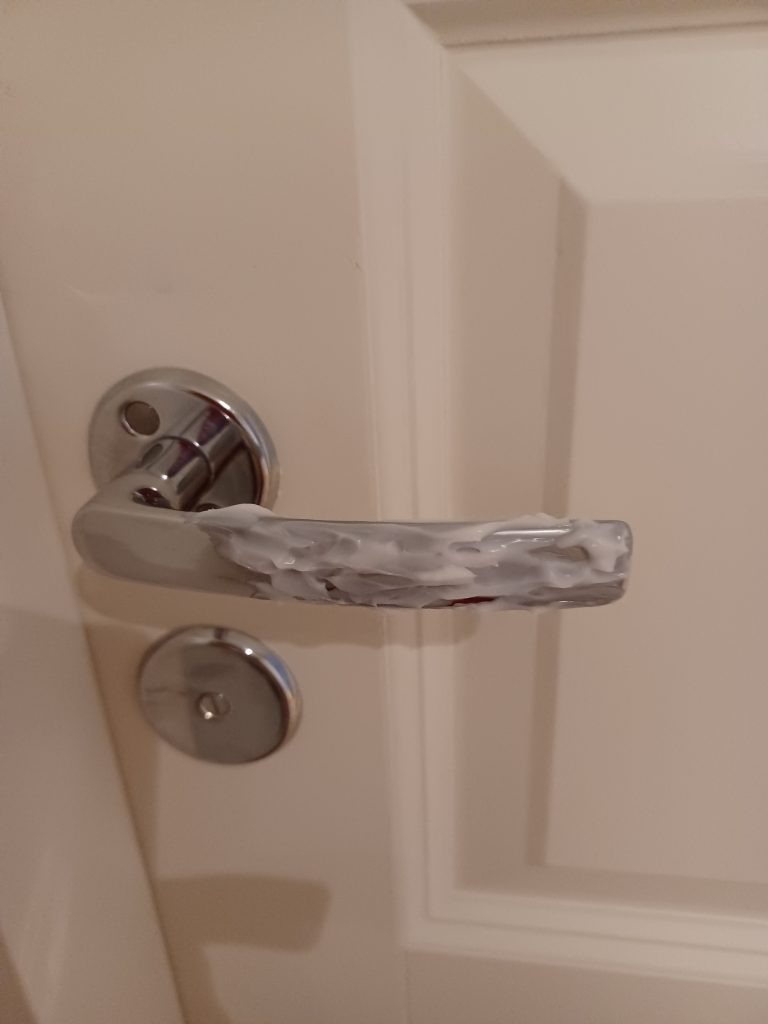

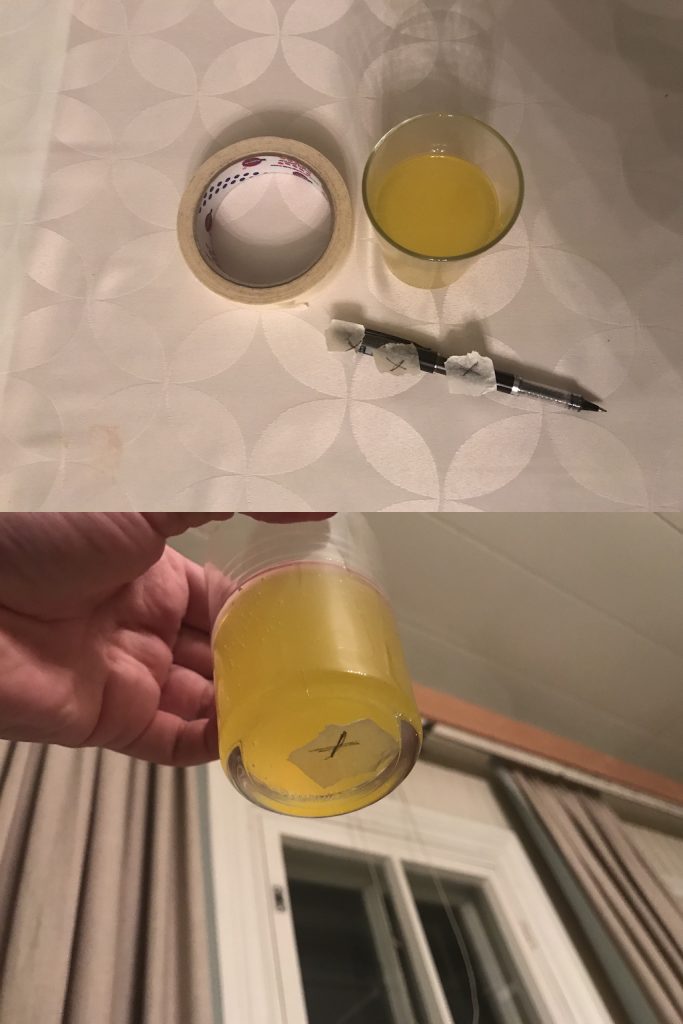
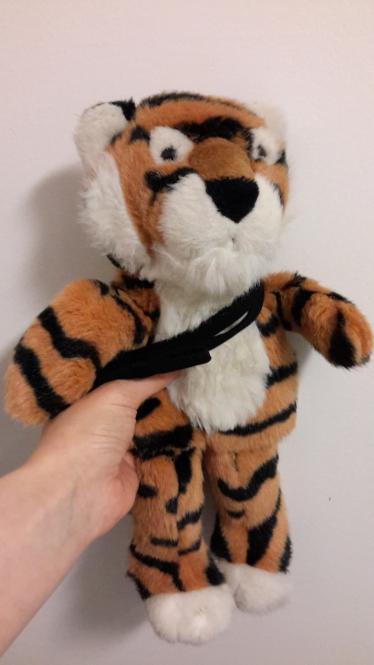
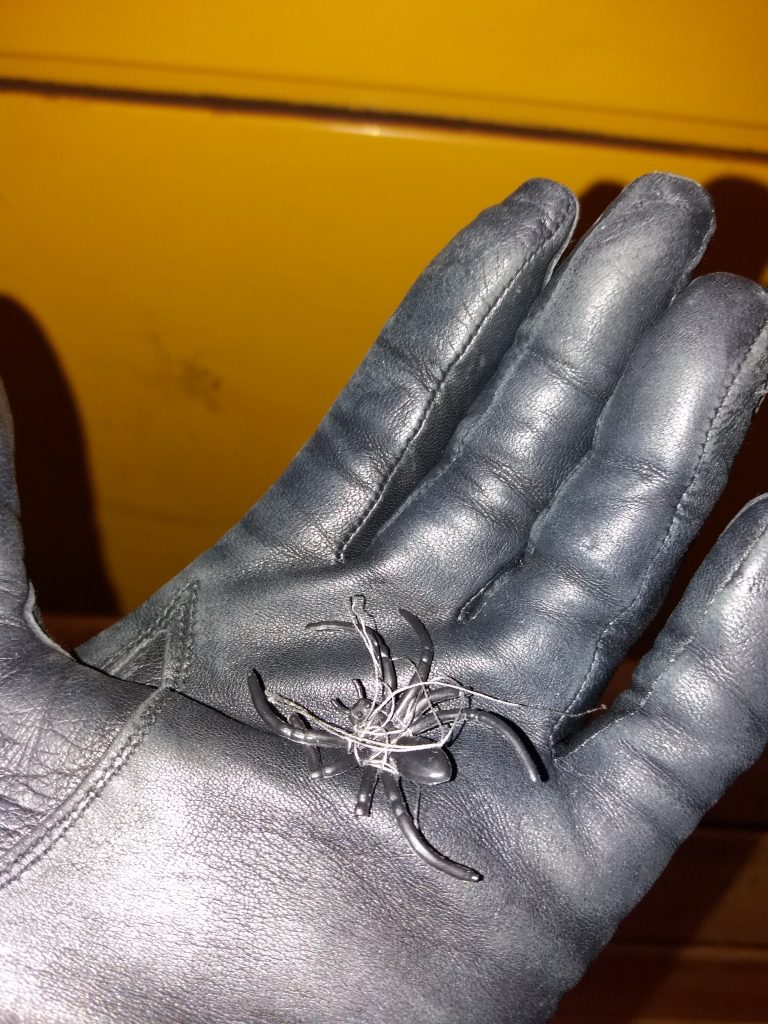
Pistols
- Pistols are
- water guns
- and nerf blasters.
- The pistol kills, if
- the projectile shot by it hits the target or a too light obstacle (a folder, a paper, etc.) in front of the target. All hits count, but ricocheted projectiles don't.
- ampuja pääsee alle metrin etäisyydelle kohdestaan, osoittaa selkeästi kohdetta ladatulla ja toimintavalmiilla aseella, sanoo ”PUM” ja kohde on alle metrin päässä kun sana loppuu. Tämä on ”PUM-sääntö”.
- One may protect themselves from the pistol by
- avoiding being hit with the projectile or
- being behind of a sufficiently heavy obstacle (furniture, door, etc.).
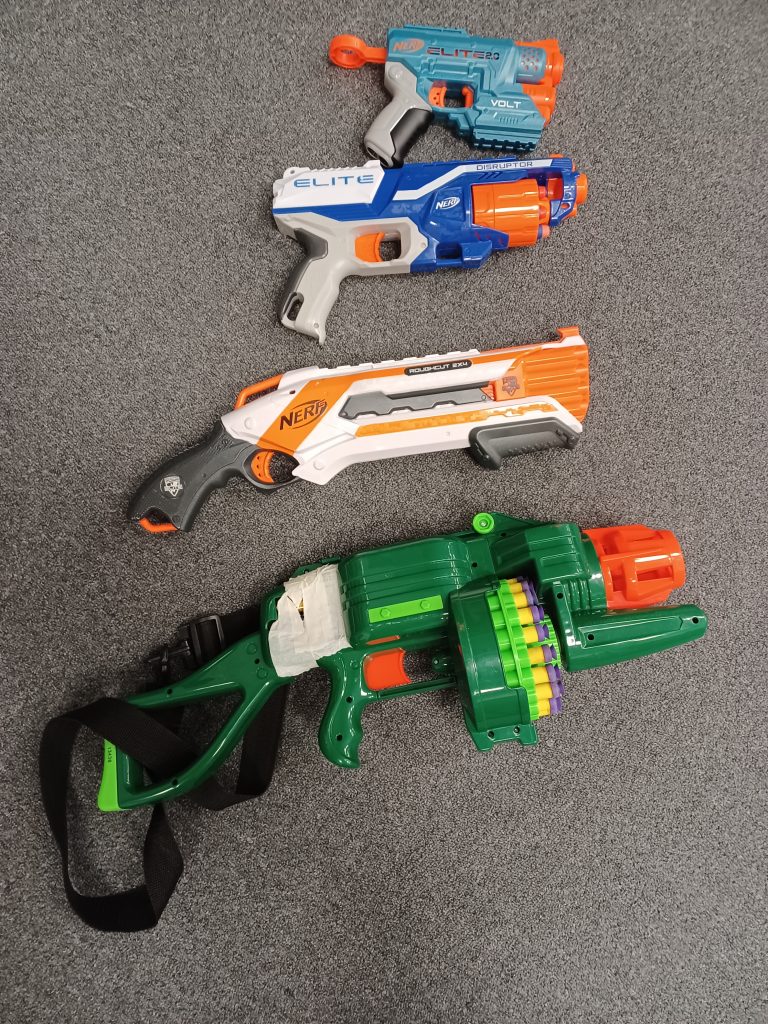
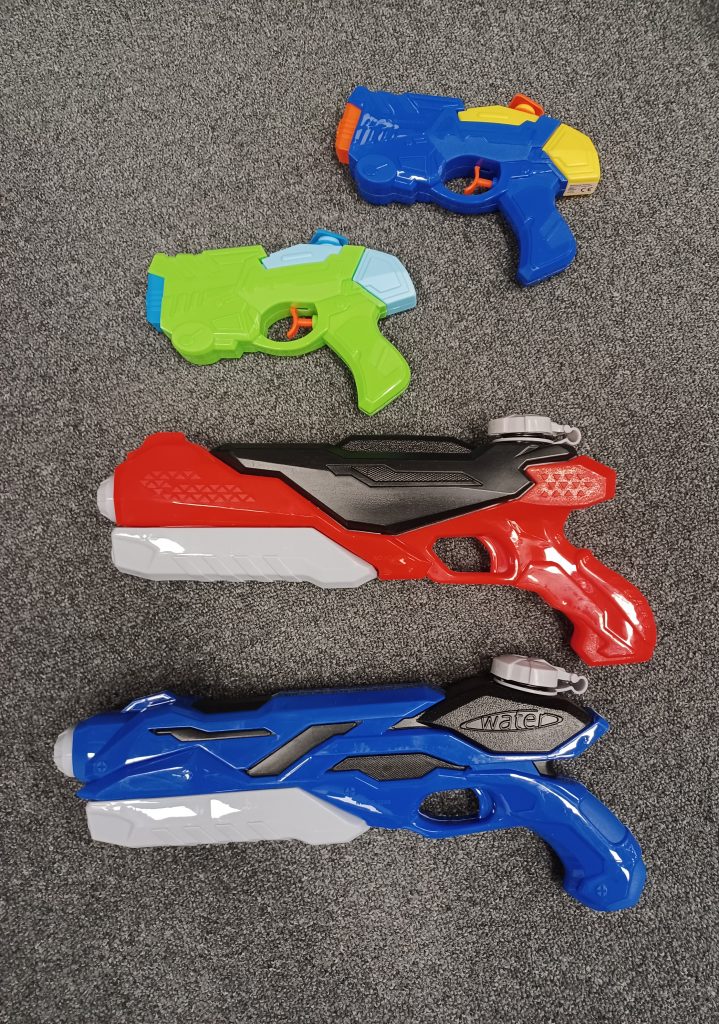
Weapons that have to be pre-checked and approved by the weapons umpire
One of the most typical weapons pre-checked and pre-approved by the weapons umpire are bombs. They have their own set of rules listed below for future reference. Other pre-checked and pre-approved weapons can be for example a scorpion pit, a scythe or a gas poisoning.
Bombs
- A bomb can be any object that meets the following criteria:
- each side of the object is at least 5 cm long
- the object's volume is at least 1 liter
- the permit to use the object as a bomb has been acquired from the weapons umpire beforehand.
- The bomb kills if
- it is not defused before a loud timer goes off
- the target triggers the bomb by some sort of movement, eg. by moving the bomb or pulling a string.
- All other triggering methods are forbidden.
- Bombs are forbidden in public places.
- The radius of the bomb is dictated by the volume of the bomb followingly:
- The radius of 1 liter bomb is 3 (unobstructed) meters
- The radius of 3 liter bomb is 8 (unobstructed) meters
- There are no longer radii.
- The bomb is a fluke (fails), if there are more than 4 victims that can be interpreted as by-standers. This will lead to becoming wanted.
- The following message must be adhered clearly in sight to the bomb, verbatim:
"This is a simulated TOY bomb that belongs to the assassination tournament [tournament name and year] hosted by the Helsinki University's Society of Human hunters (http://www.salamurhaajat.net/en). If you are reading this and do not know about the game, a mistake has occurred and we kindly request that you let us know by sending an email to hallitus@salamurhaajat.net. Our sincere apologies.
Maker: [alias]. Effective radius [] unobstructed meters. - You may add your own greetings to the target at the end of the message.
- One may protect themselves from bombs by
- removing or neutralizing the timer
- requesting a bomb squad by calling the umpires (-2 points)
- hiding behind an obstacle.
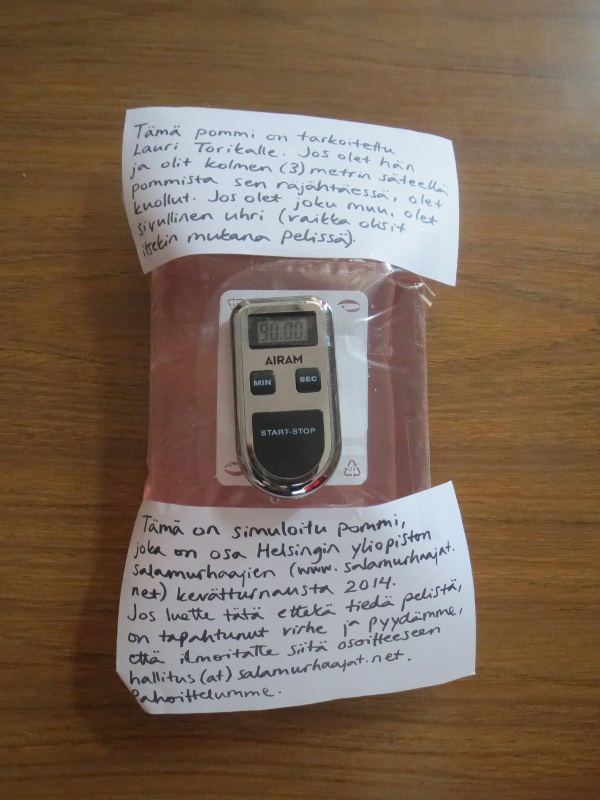
Scoring
- The winner of the game is the player (or the team), who has gathered most points after the tournament has concluded.
- Points are received from:
- operations (assassination, arrest or self-defense) and their reports as well as death reports, according to the tables below
- possible extra missions explicitly announced by the umpires.
- Remember to report to the umpires within 48 hours of your operation or death! A selection of example reports in Drive with their points. The umpires especially value grudges whispering from beyond the grave, as well as dramatic operations that fit the theme of the tournament.
Salamurhan pisteytys / Murder scoring
| Operation | Report | Style | Home stairway | Witnesses | Bystanders | Bomb squad | First weapon of its kind | Pro level difference | At maximum | |
|---|---|---|---|---|---|---|---|---|---|---|
| Points | 10 | 1-3, -5 if missing | 0-3 | -2 | -2 per witness | -1 per collateral damage | -2 | 0-1 | 0-4 | 21 |
Pidätyksen tai itsepuolustuksen pisteytys / Self-defense or arrest scoring
| Operation | Report | Style | At maximum | |
|---|---|---|---|---|
| Points | 5 | 1-2, -5 if missing | 0-3 | 10 |
Kuoleman pisteytys / Death scoring
| Report | At maximum | |
|---|---|---|
| Points | 1-2, 0 if missing | 2 |
After the game
Pelin jälkeen järjestetään palautetilaisuus, jossa keskustellaan turnauksesta. Tilaisuuteen ovat tervetulleita kaikki, myös ne, jotka eivät osallistuneet turnaukseen. Palautetilaisuudessa jaetaan myös diplomit ja muut murhaisan kunnian tunnustukset osallistujille.
Pelin jälkeen turnausjärjestelmä pyyhitään puhtaaksi. Tämä tarkoittaa, että ainoa jäljelle jäävä data turnausten jälkeen on turnausten tapahtumasivut, joissa näkyy aliakset, raportit ja pisteytys. Salamurhaajat vainoavat sinua vain painajaisissasi pelin loputtua!
If you have questions regarding a past tournament, please contact the board via email: .

